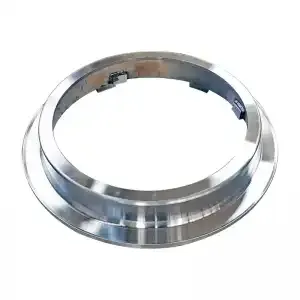Дек . 25, 2024 09:20 Back to list
alloys of aluminum
Alloys of Aluminum A Comprehensive Overview
Aluminum is one of the most widely used metals in the world due to its exceptional lightweight properties, excellent corrosion resistance, and high strength-to-weight ratio. However, pure aluminum is often too soft for many applications, prompting the need for aluminum alloys. These alloys combine aluminum with other elements to enhance specific properties, making them suitable for a variety of industrial applications.
Understanding Aluminum Alloys
Aluminum alloys are categorized into two main classes wrought and cast alloys. Wrought alloys are mechanically worked into shapes such as sheets, plates, and extrusions, while cast alloys are melted and poured into molds. The classification of aluminum alloys is further divided based on their alloying elements, primarily falling into two broad categories series 1xxx and 8xxx.
1. Series 1xxx These are pure aluminum alloys with a minimum of 99% aluminum content. They exhibit excellent corrosion resistance and thermal conductivity but low strength. Common applications include electrical conductors and chemical equipment.
2. Series 2xxx Copper is the primary alloying element here. These alloys are known for their high strength and excellent machinability. However, they have lower corrosion resistance, making them more suitable for aerospace applications where weight savings and strength are critical.
3. Series 3xxx Manganese is added to this series, which enhances corrosion resistance and workability. These alloys are primarily used in the manufacturing of beverage cans and roofing sheets.
4. Series 4xxx Silicon is the principal alloying element. These alloys are notable for their low melting points and are commonly used in welding materials and automotive applications.
5. Series 5xxx Aluminum-magnesium alloys are characterized by their good corrosion resistance and weldability. They are widely used in marine environments, fabrication of pressure vessels, and architectural components.
6. Series 6xxx This series combines magnesium and silicon, offering good corrosion resistance and medium strength. They are frequently employed in structural applications, including buildings and bridges, as well as in the production of extruded profiles.
alloys of aluminum

7. Series 7xxx Zinc is the main alloying element in this series, which is known for its high strength characteristics, making it ideal for aerospace applications. They also exhibit good fatigue resistance.
8. Series 8xxx This series encompasses a range of other elements, including lithium or iron. These alloys are used for specific applications like aluminum foil and packaging materials.
Advantages of Aluminum Alloys
The adoption of aluminum alloys is favored in numerous industries due to several advantages
- Weight Reduction Aluminum alloys provide significant weight savings over steel and other metals, which is crucial for industries such as aerospace and automotive where every kilogram counts.
- Corrosion Resistance Most aluminum alloys have a natural oxide layer that protects them from corrosion, thus ensuring longevity in various environments.
- Versatility With a wide range of alloys available, manufacturers can select specific properties tailored to their needs, whether they require higher strength, improved workability, or enhanced resistance to environmental factors.
- Recyclability Aluminum alloys are highly recyclable without loss of their properties, making them an environmentally friendly choice in the context of sustainable manufacturing.
Conclusion
Aluminum alloys play a critical role in modern engineering and manufacturing. Their ability to combine lightweight characteristics with strength and versatility has made them invaluable in industries ranging from aerospace to consumer goods. As technology advances, the development of new aluminum alloys will continue to enhance their performance and expand their applications, ensuring that aluminum remains a cornerstone material in the industrial landscape for years to come. Whether it's in the manufacture of airplanes, automobiles, or even everyday items, the significance of aluminum alloys cannot be overstated.
-
A-Rated Cast Aluminum Boilers: High-Efficiency Condensing Gas & LPG
NewsAug.26,2025
-
OEM Cast Silicon Aluminum Alloy Heat Exchanger | Custom & High Performance
NewsAug.25,2025
-
Centrifugally Cast Iron Water Main Pipe | Ductile Iron Solutions
NewsAug.24,2025
-
Durable Cast Steel Concrete Pipe Mold Bottom Rings & Base Trays
NewsAug.23,2025
-
Centrifugally Cast Iron Water Main Pipe for Reliable Mains
NewsAug.22,2025
-
Durable Centrifugally Cast Iron Water Main Pipe
NewsAug.11,2025


